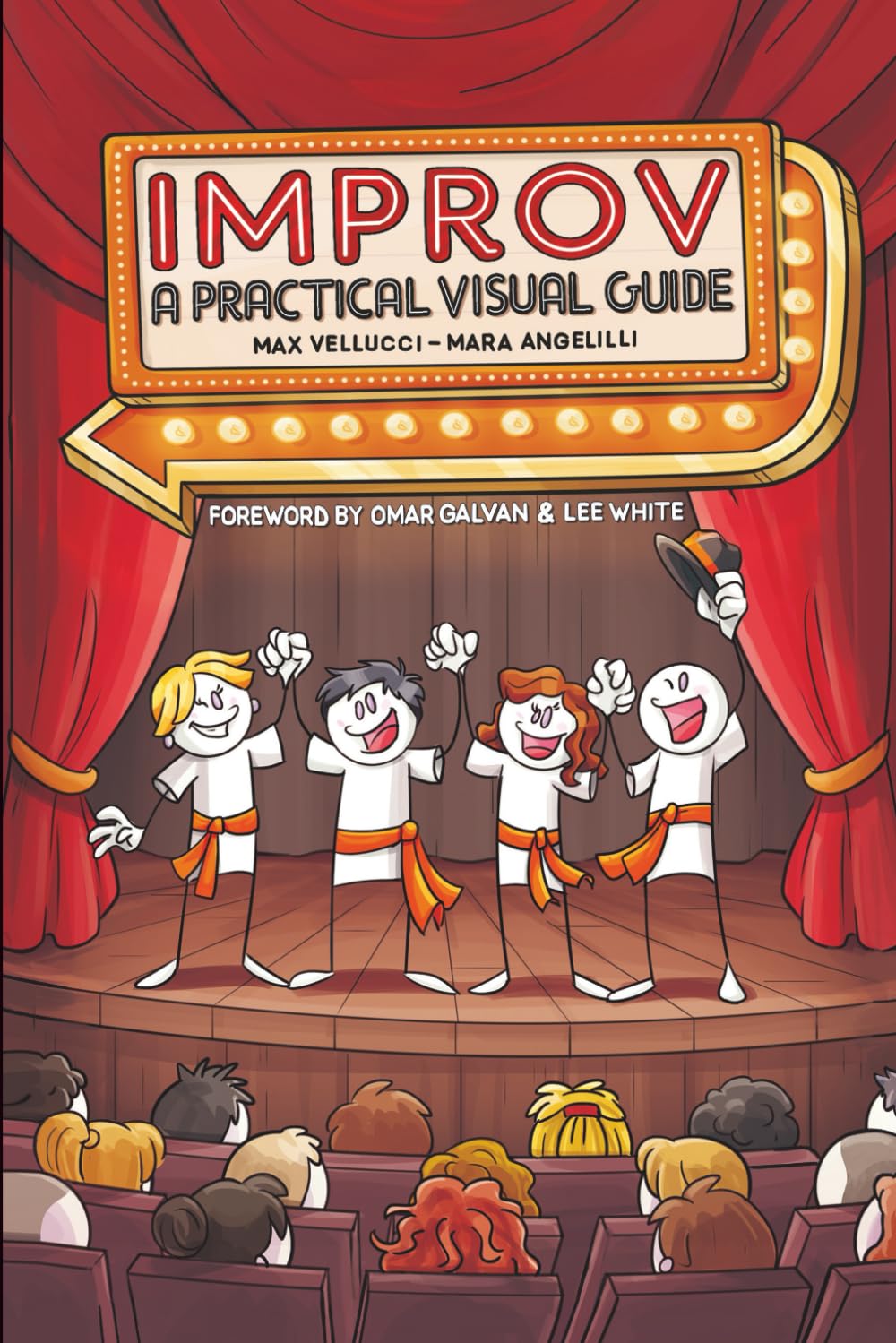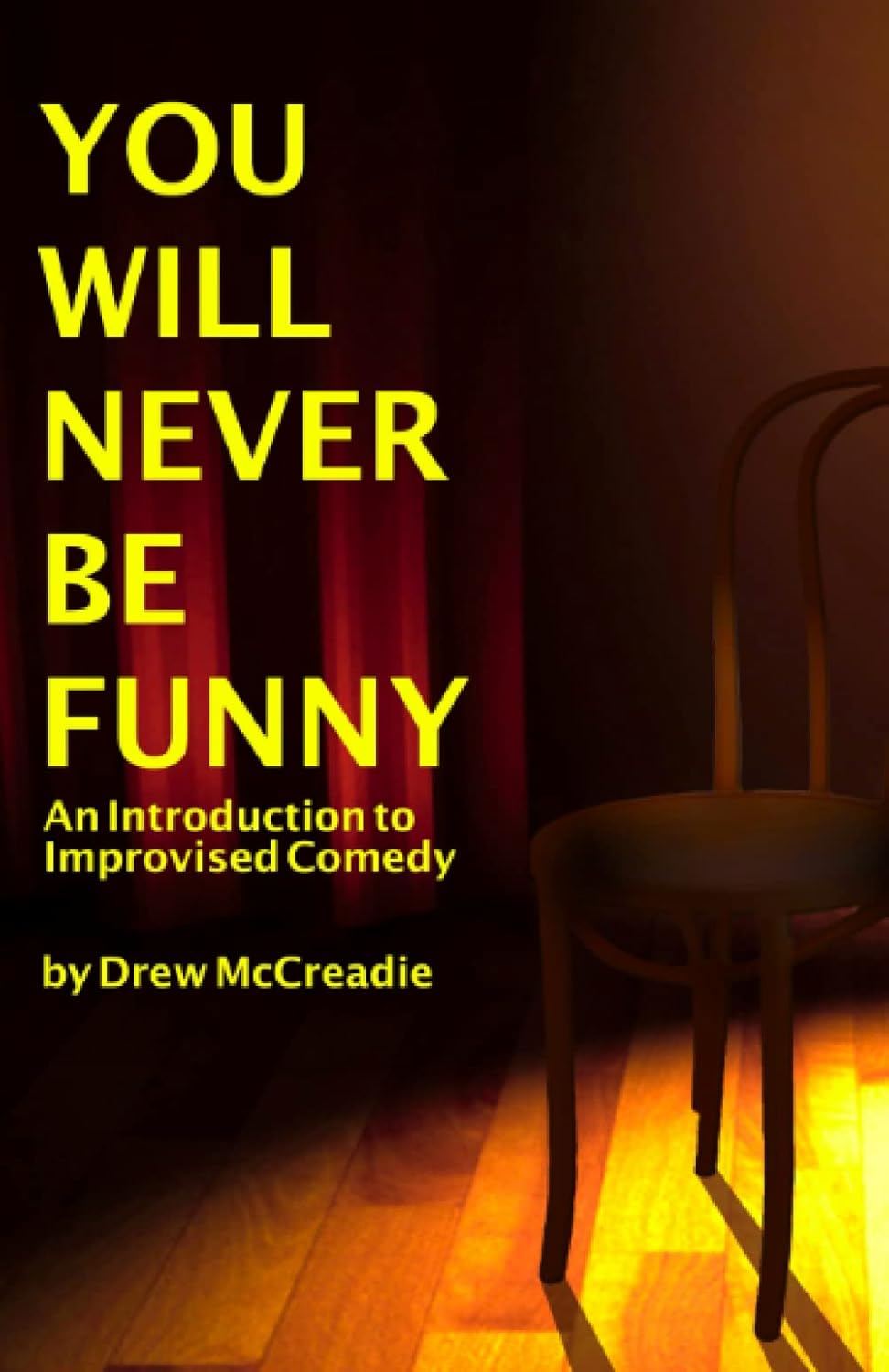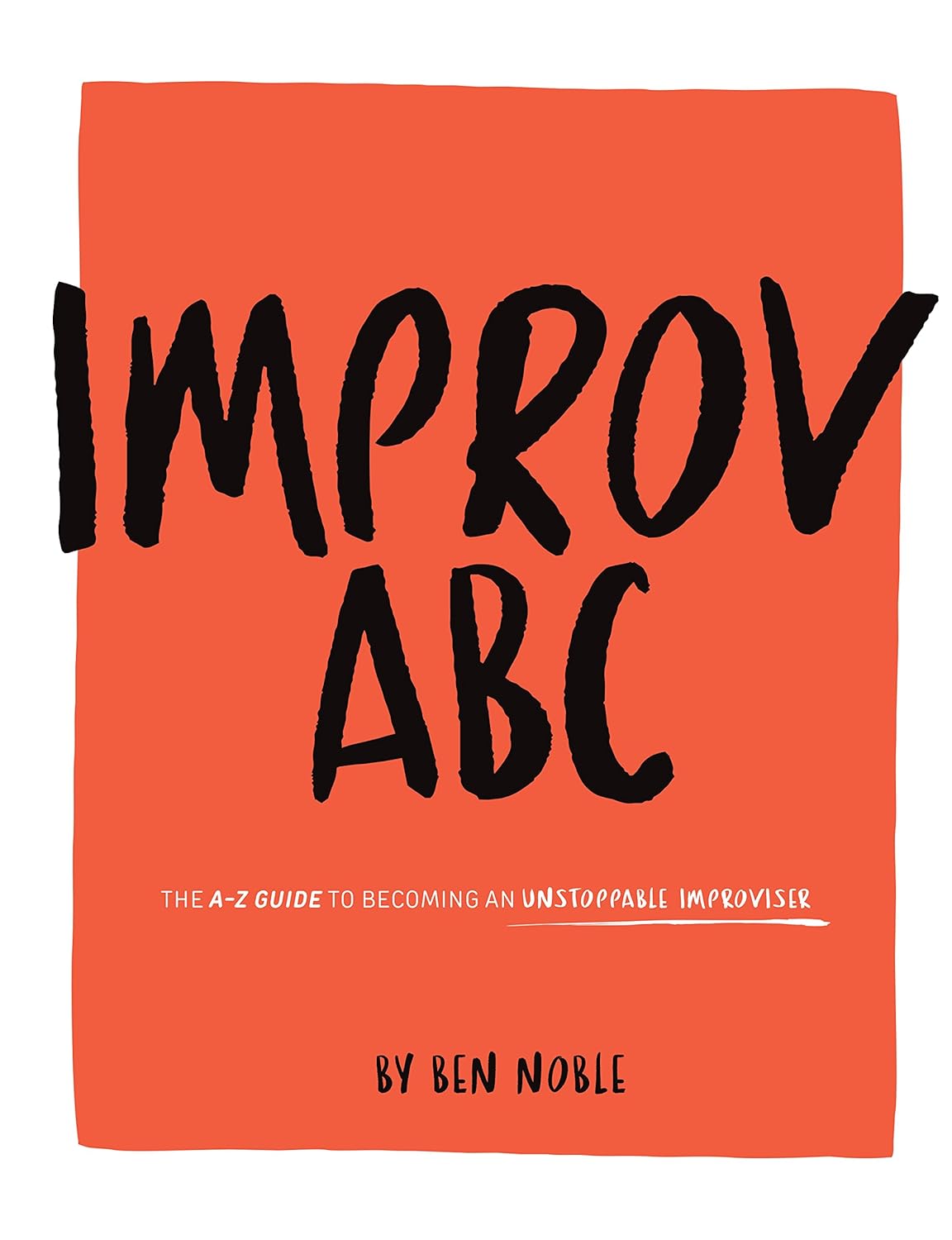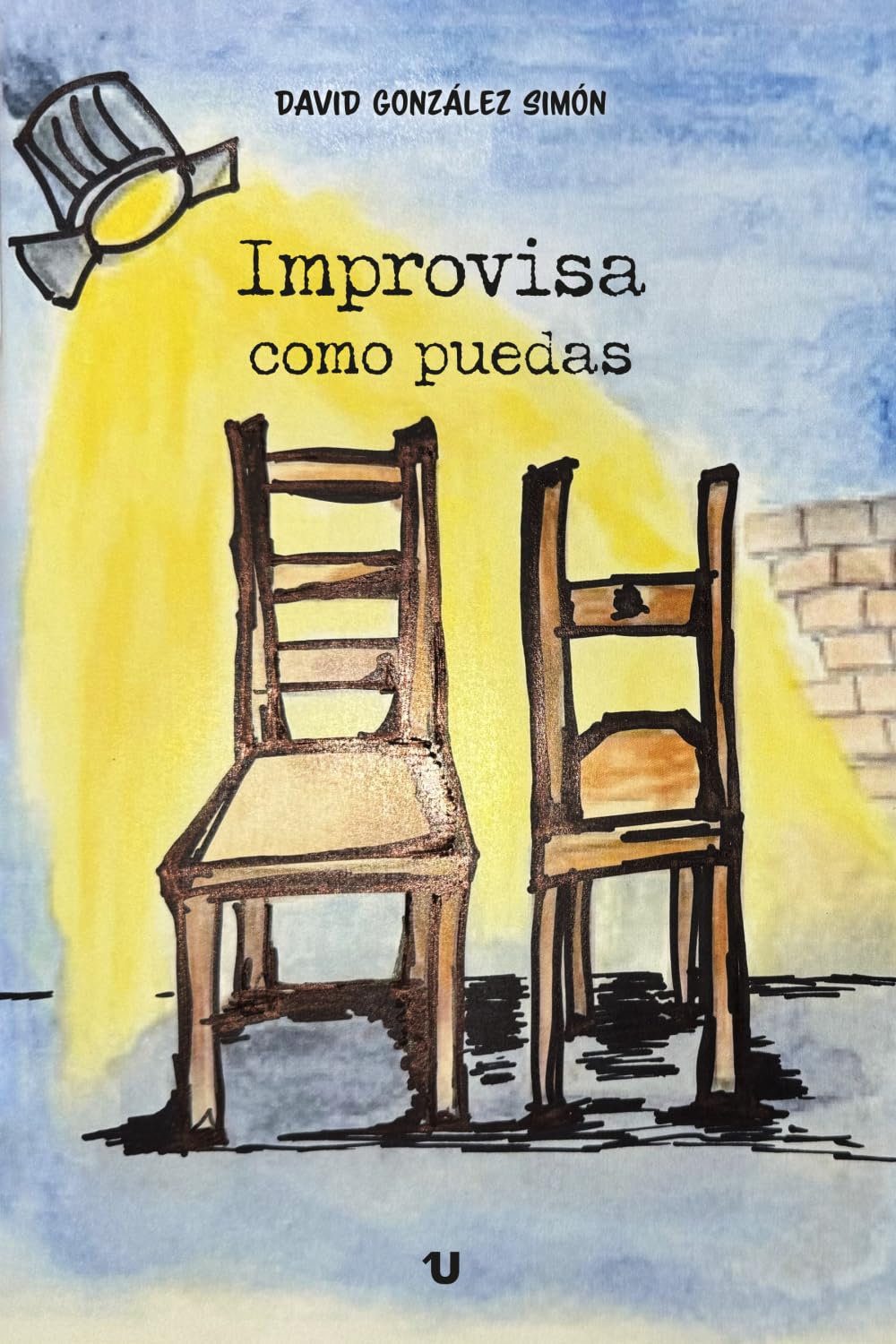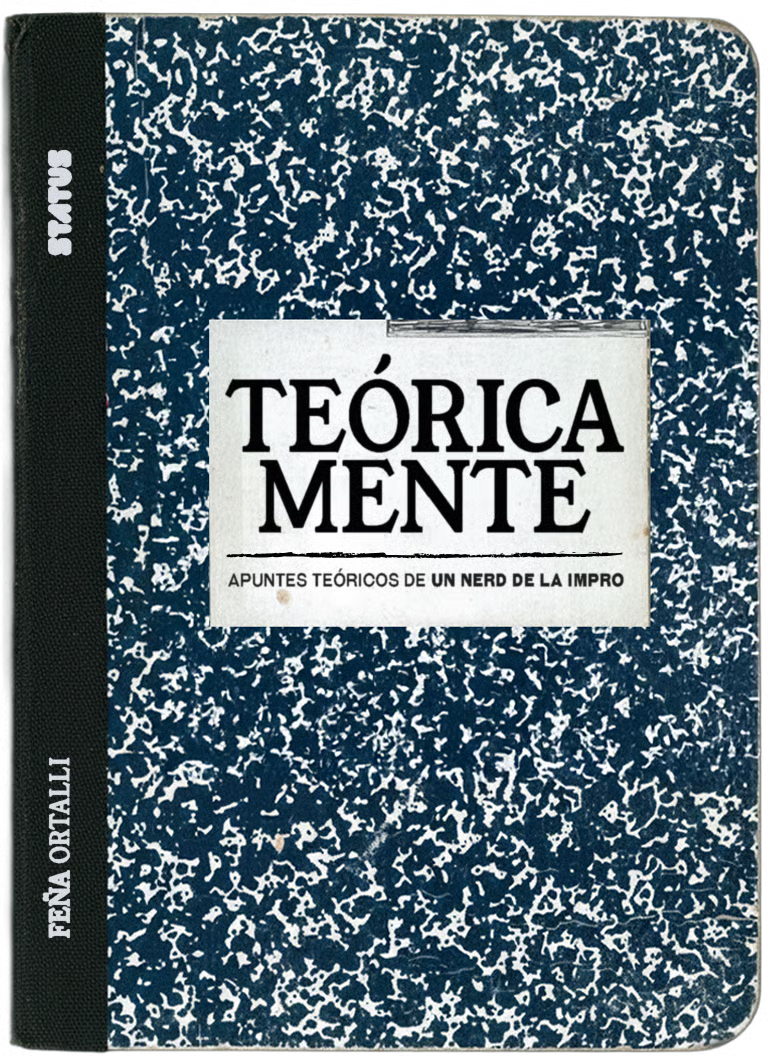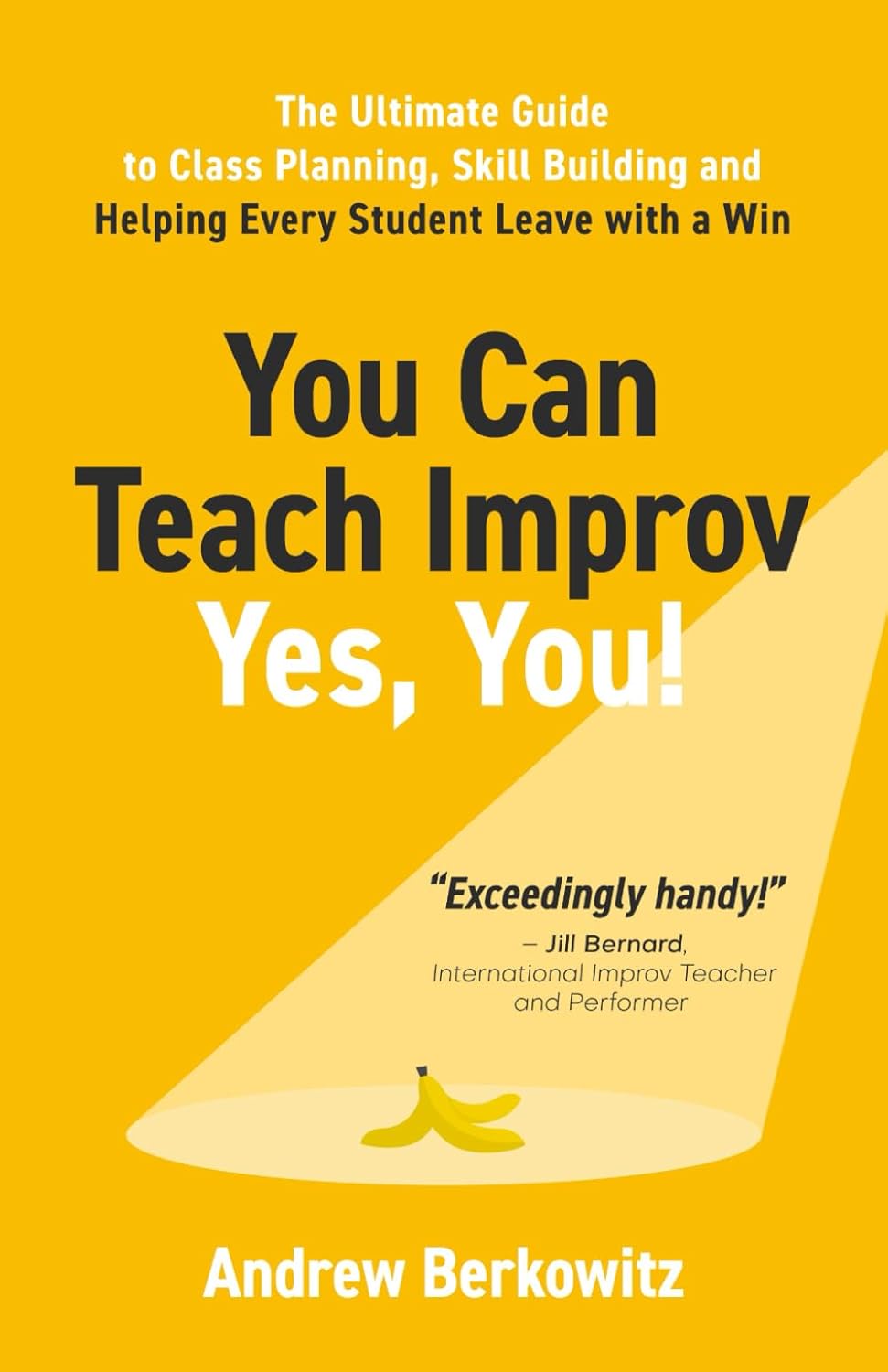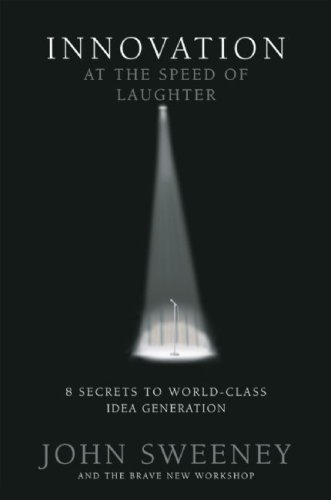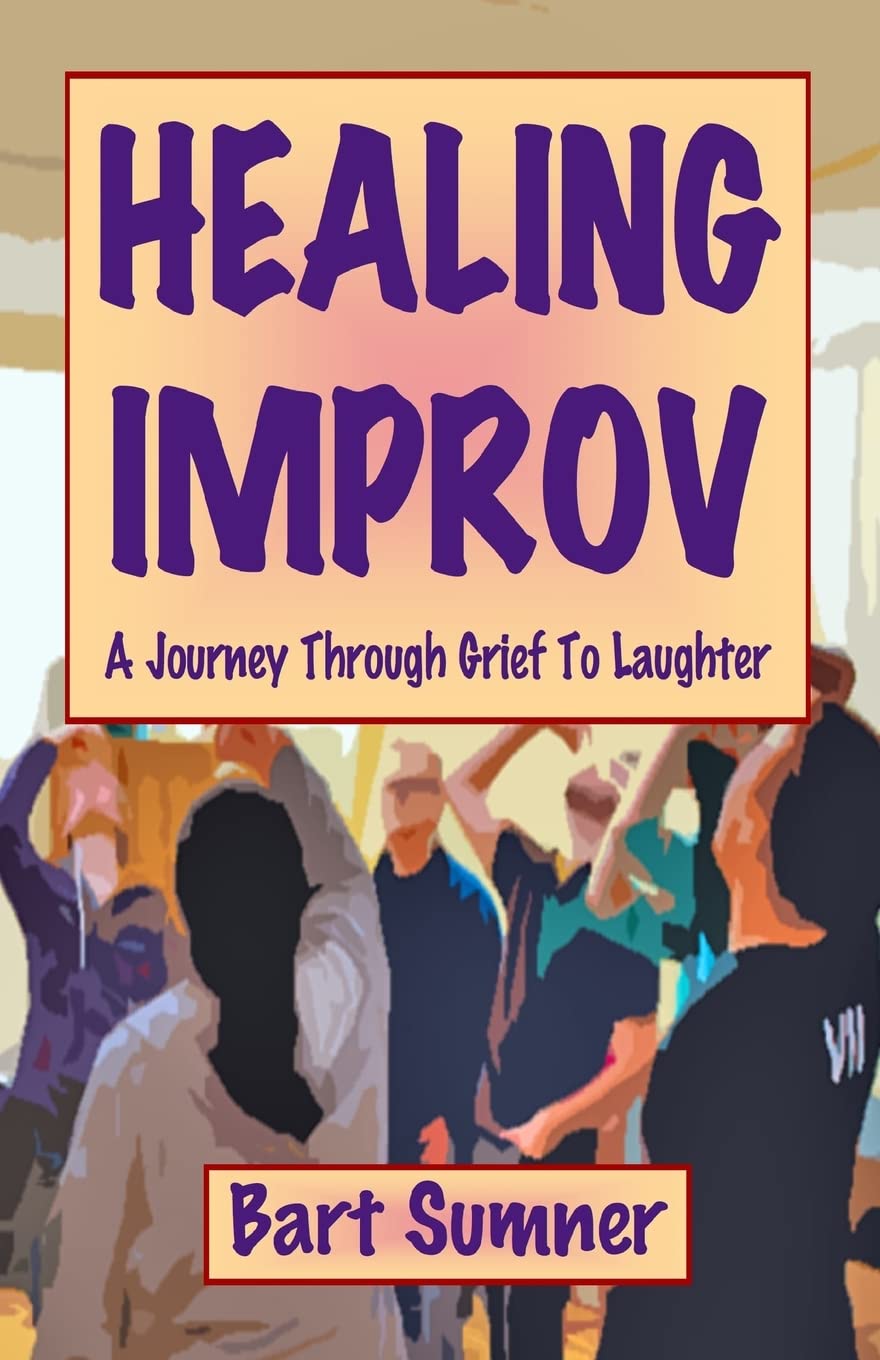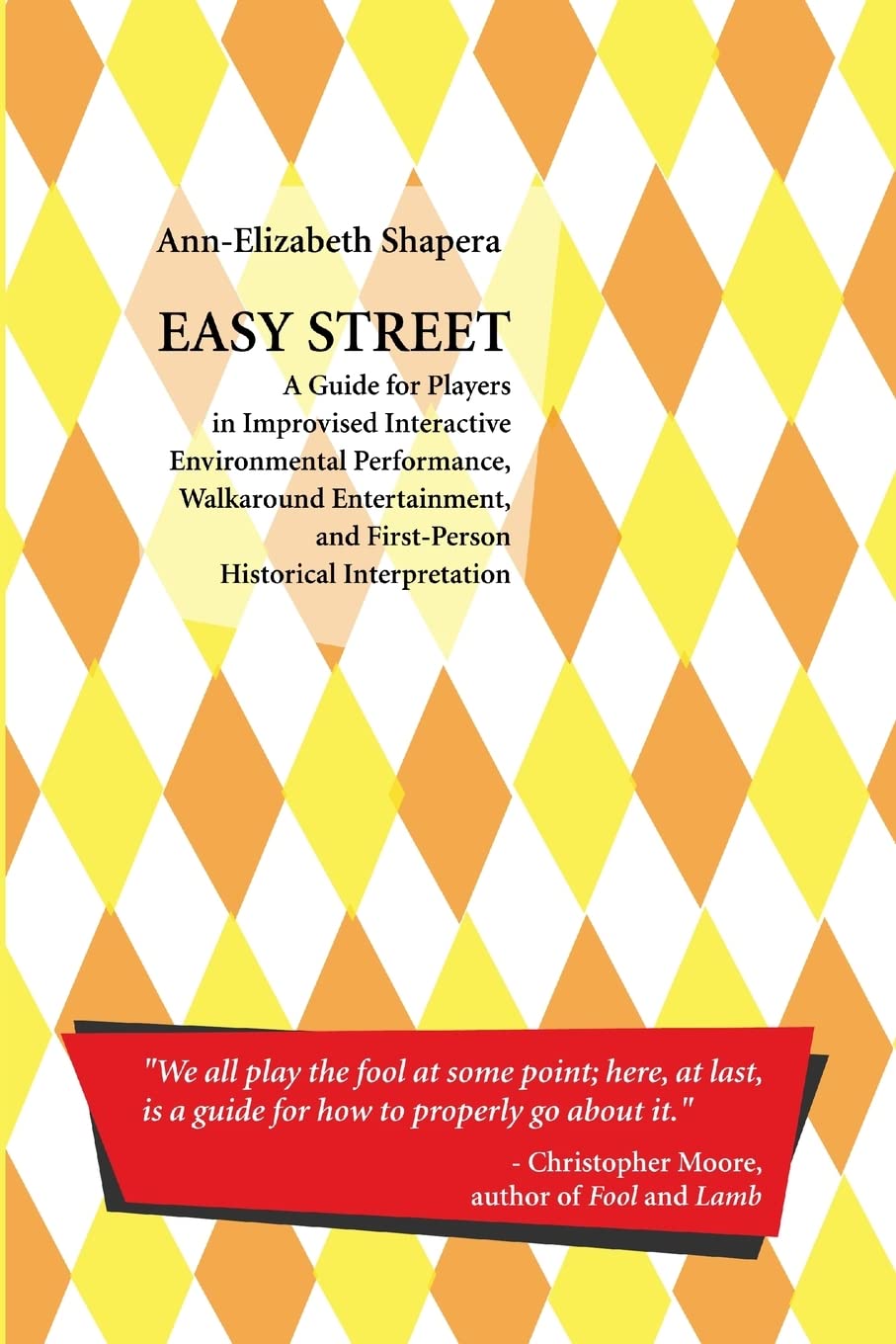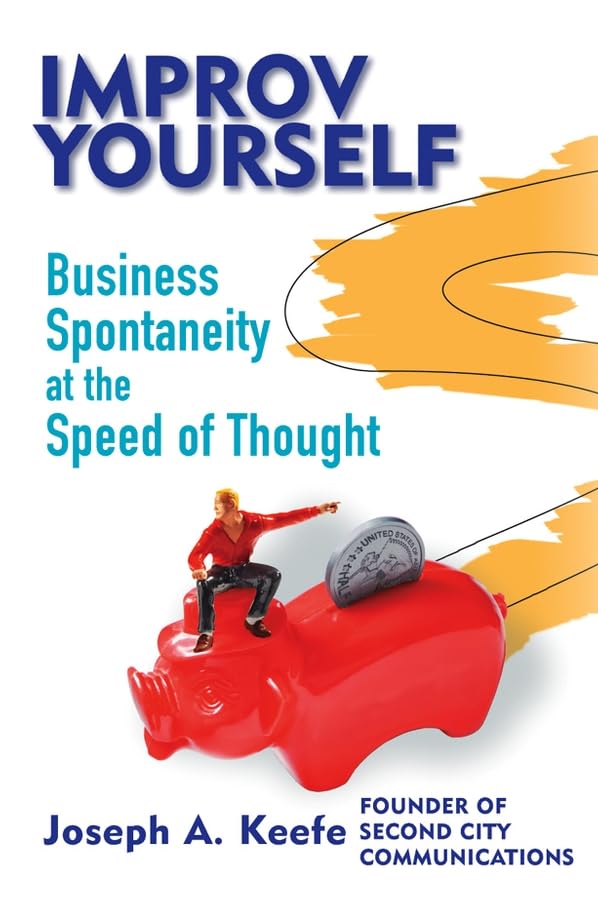IMPROV: A Practical Visual Guide to Improvisational Theatre and Stage Training for Performers If you love theatre and improvisation, this guide is made for you.It’s not just another book, it’s an artist’s sketchbook, illustrated in a unique hand drawn style, created to inspire, guide, and train performers of any level, with a foreword by Omar Galvan and Lee White. Improvisational theatre is a living, surprising, and deeply human art form.This book takes you on a journey through its core principles, its most effective exercises, and its hidden secrets, using a practical, visual, and engaging approach. Whether you’re stepping on stage for the very first time or looking to expand your skills as a performer, you’ll find here a clear and stimulating guide to: Through a distinctive visual style made of hand drawn sketches that feel like pages from an artist’s notebook, and a smooth balance of explanations, exercises, and illustrations, you’ll discover how improvisation can become real training for your mind, body, and emotions. Inside this guide you will find: This book is for you if: Improvisation can be learned. And this is the perfect place to start.
Improv books
Here you will find the most complete list of theatrical improv books, whether they are improv games, long-form improv or essays on the state of improv.
You Will Never Be Funny: An Introduction to Improvised Comedy YOU WILL NEVER BE FUNNY, but you can learn how to do funny things. Canadian Comedy Award winning improvisor Drew McCreadie introduces you to the art of improvised comedy. With decades of experience performing all over the world, Drew has developed a unique approach to teaching improv comedy. This book will teach you how to improvise, but it will not teach you how to be funny, because you will never be funny! Improv comedy is not just for performers. Anyone wanting to improve their public speaking or presentation skills will benefit from developing good improvisation skills. Learn how to make people laugh. Get better friends. Rule the world.
Improv ABC: The A-Z Guide to Kicking Butt At Improvisation Learn the basics. Master the fundamentals. Become an unstoppable improviser. Improv ABC is like an improv cheat sheet.Want to get better at improv but feel like you’re stuck in a rut? Does it seem like your teammates and improv idols are having more fun up there than you are? Do you spend a lot of time worrying if you’re even doing this right?We’ve all felt those feelings throughout our improv careers—it’s practically a right of passage. The issue is that improv teachers around the world all give the same advice. They’ll tell you “not worry so much” or “follow the fun.” It sounds good in the abstract, but when you have a show tonight you need something a little more actionable.Improv ABC is for improvisers who want a swift kick in the butt. It’s for those of us who crave simple and straightforward tips and tricks about improv’s most important concepts. Inside, you’ll find: And there are, obviously, 22 other letters, and they stand for things too. Big important improv things. The things we all need to master to become unstoppable. From beginners to veteran performers, the best improvisers never…
In this book, or call it a tribute to mediocrity, I attempt to synthesize many concepts without lengthy and tedious theorizing (in my opinion). I base many of the ideas on my experiences acting and teaching students, what I’ve learned, what I’ve observed, and, of course, my professional life as a comedic actor and improviser, taking belly flops—sometimes literally—across countless stages, theaters, venues, parties, beach bars, private terraces, pubs, unlicensed beauty clinics, living rooms in private homes, caves, weddings, offices, curling rinks, courthouses, sewers, small hardware stores, and other improvised “stages” that defy description. DIVE INTO THE EXCITING WORLD OF THEATRICAL IMPROVISATION, LEARN, PLAY, GROW ARTISTICALLY, AND HAVE FUN! Damn, that sounds like an order, doesn’t it? Book Composition: Yes, the total sum is 100. David SimónComedic actor, improviser, teacher of theatrical improvisation and monologues since 2014, drinking beer since 1991. (Sabadell 1973), a place so exciting that even the cacti yawn, epicenter of very ordinary events. I don’t celebrate my birthday, I suffer through it. I’m a terrible yodeler (I’m forbidden from going near the Alps). My weight on the moon is 13.23 kilos. I like cats, toucans, and jazz. I’m an improv teacher with no complaints filed against…
New book by Feña Ortalli. And no, this time is not about football. 190 pages of technical and theoretical exploration of different concepts in improvised theatre.
You Can Teach Improv (Yes, You!): The Ultimate Guide to Class Planning, Skill Building, and Helping Every Student Leave With a Win Learn the secrets of improv teaching today! Whether you’re just starting out or leveling up, this book unlocks your inner instructor and helps you to deliver memorable, effective, and fun classes. You’ll learn to:
Innovation At the Speed of Laughter: 8 Secrets to World Class Idea Generation Innovation at the Speed of Laughter explores the unexpected ways in which the tools of improvisational comedy can improve business performance. Combining his insights as a successful businessman with his expertise as a performer, John Sweeney reveals eight secrets to jump-starting workplace creativity and corporate ideation developed from the quirky, spontaneous art form of improvisation. The secrets include ‘Accepting All Ideas,’ ‘Deferring Judgment,’ and ‘Creating a Statusless Environment.’ Sweeney and the Brave New Workshop have used these secrets to help companies like General Mills, 3M Corporation, Hewllett-Packard, and Disney develop wonderfully uncommon ideas. Innovation at the Speed of Laughter will similarly help businesses, leaders, and individuals tap into their innovative potential–for creative expression as well as profitability.
Healing Improv: A Journey Through Grief to Laughter. In 2009 Bart Sumner’s life was shattered when his 10-year-old son, David, suffered a traumatic brain injury at football practice and died in his arms. Finding a way back to the road forward in a world where mourners are told “He’s in a better place” or to “Get over it” is a daunting and painful journey. He came to realize that the twenty-five plus years he spent as a performer and teacher of improvisational comedy was not only the key to his own survival, but also a powerful tool to help others mired in grief. Healing Improv: A Journey Through Grief to Laughter is an emotional and honest recounting of his family’s trek through grief to the founding of a nonprofit that provides no-cost Comedy Improv Grief Workshops for others suffering with loss. Mr. Sumner’s approach is unique in its application of improv comedy exercises to grief treatment. Healing Improv includes many of the improv games used at Healing Improv workshops so that others can also benefit from the curative, life affirming fun. Pairing these techniques with his family’s powerful and touching story of survival makes this book a strong ally to…
Easy Street: A Guide For Players In Improvised Interactive Environmental Performance, Walkaround Entertainment, And First-Person Historical Interpretation EASY STREET is a guide for players in improvised interactive environmental performance, walkaround entertainment, and first-person historical reenacting. It’s also about much, much more than that, because the principles of effective Street play apply to any situation involving connections between people: sellers and customers, teachers and students, service providers and clients, programmers and end-users, co-workers, teammates, and fellow members of Leagues of Superheroes thrive wildly when these principles are in play. A-E Shapera has performed and taught at Shakespeare festivals, Renaissance Faires, fringe festivals and historical reenactments for over twenty years. Her walkaround character, Jane the Phoole, has performed by invitation at England’s Muncaster Castle, home to the original “Tom Fool,” and is the Official Municipal Jester of the City of Milwaukee. With a pithy blurb by bestselling author Christopher Moore!
Improv Yourself: Business Spontaneity at the Speed of Thought Discover your improvisational skills for a more productive, more dynamic work life Whether we know it or not, most of us use our improvisational skills every day in the workplace when we deal with clients and colleagues. Improv Yourself shows the reader in clear detail how to use and hone improvisational skills for better business interactions and a more productive work environment. Business expert and all-around funny guy Joe Keefe offers expert guidance on nurturing our improvisational skills to help us think on our feet, deal with customers, interact with team members, present new ideas, and brainstorm. Full of humor, wit, and expert business insight, Improv Yourself is like nothing else on the business shelf (could you tell I just made that up?).
